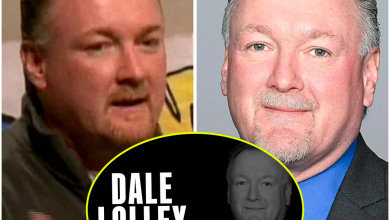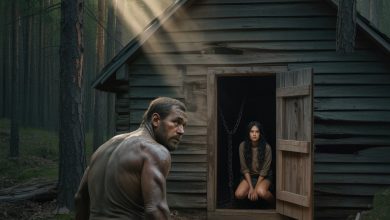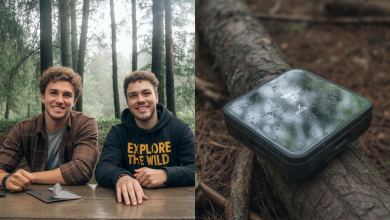My Parents Gave My Sister a $5 Million Inheritance. Then My Grandpa Stood Up and Gave Me Everything.
The library at my grandfather’s New Hampshire estate was silent, but the tension was so thick you could taste it. My entire family had been summoned for a “financial meeting,” and I knew, with the certainty born of 28 years of experience, that I was not going to like the outcome. My father, Richard, stood before us, beaming with pride. Beside him, my older sister, Harper, the golden child and heir apparent to the family’s financial firm, looked every bit the corporate princess.
“In recognition of the next generation’s contributions,” my father announced grandly, “Catherine and I have decided to distribute a significant portion of our personal assets now.” He produced a blue folder and presented it to my sister. “We are allocating five million dollars to Harper, effective immediately, to recognize her unparalleled dedication.”
A polite smattering of applause filled the room. Then, my father turned to me, his expression a mask of condescending pity. “Amber,” he said, as if suddenly remembering I was there. “While your chosen career path hasn’t aligned with family interests, perhaps this will motivate you to work harder and achieve the kind of success your sister has demonstrated is possible.”
The sting of the public humiliation was sharp and familiar. My career as an architect, the awards I’d won, the community-centered projects I poured my soul into—all of it was dismissed as a quaint hobby compared to Harper’s „real“ work. I was about to quietly slip out of the room when a voice, frail but firm, cut through the air.
“I’ll stand for this.”
All heads turned. My 80-year-old grandfather, Maxwell Wilson, the patriarch who had built our family’s fortune from nothing, was slowly, deliberately pushing himself up from his wheelchair. The room fell into a stunned silence. My father rushed forward, but my grandfather waved him off. “I can stand on my own two feet, Richard,” he said, his voice gaining strength. “Something I’m not sure you’ve ever truly done.”
Growing up, I was the perpetual second-place finisher. Harper was the star, the one groomed to take over Wilson Financial Group. My parents celebrated her every move while my achievements were met with polite indifference. They missed my state science fair victory for Harper’s minor cold. They arrived late to my valedictorian speech because of Harper’s hair appointment. I was the quiet one in the corner, building intricate structures with blocks while they praised Harper for pretending to take calls on a toy phone.
The only person who ever truly saw me was my grandfather. He’d look at my cardboard cities and say, “Buildings need to be beautiful, but they also need to stand strong when the winds come.” He understood that I wasn’t just playing; I was designing. He was the one who flew across the country for my high school graduation, the one who encouraged my passion for architecture as a force for social good. I had long ago made peace with my parents’ indifference, finding validation in my own work and my grandfather’s quiet approval.
But standing in that library, after being so casually dismissed, the old wounds felt fresh. I watched as my grandfather, a lion in winter, steadied himself and prepared to change the course of all of our lives.
“I’ve sat here today and watched a display that has confirmed my worst fears about what’s become of this family,” he said, his gaze sweeping over my parents and Harper. He then turned to me. “Amber, please come back and take a seat. What I have to say concerns you most of all.”
My heart pounded as I returned to my chair. What followed was a systematic dismantling of the family narrative. My grandfather, with heartbreaking clarity, spoke of the values he had built his company on—integrity, character, and the belief that wealth was a responsibility, not a privilege. Then, he turned that sharp gaze on my sister.
“The Denning Systems acquisition you’re so proud of, Harper,” he began. “Did you tell your father how you obtained their confidential projections? Or how you threatened their HR director with exposing his affair unless he provided internal documents?”
Harper’s face went bone-white. My parents looked utterly stunned.
“Dishonesty is never necessary,” my grandfather continued, his voice resonating with moral authority. He revealed that he’d had investigators documenting the family’s business practices for years. He knew about the corners cut, the harassment complaints buried, and the colleagues Harper had taken credit from and then pushed out.
Then, he reached into his jacket and pulled out a simple white envelope with my name on it. “Amber, please,” he said. With trembling hands, I walked forward and took it. Inside was a single check, made out to me, for fifty-five million dollars.
Gasps echoed through the room. My mother shrieked, “You can’t do this!” But my grandfather wasn't finished. His attorney, Stanford Green, then stood to make the formal announcement. The full estate plan included the establishment of the Wilson Legacy Trust, which held the controlling interest in all family businesses and properties. And I, Amber Wilson, was named its sole trustee.
In the space of ten minutes, I had gone from being the family disappointment to the head of the entire Wilson empire. The chaos that ensued was predictable. My father yelled, my mother cried, and Harper accused me of manipulating our grandfather. But he stood firm. “This is about character,” he told them. “About recognizing the true Wilson spirit lives on in Amber, not in those who simply bear the Wilson name while betraying its values.”
He explained that he had been secretly following my career for years, even reading the articles I had published under a pseudonym about using architecture for social justice. The trust included a massive fund for a new Wilson Foundation for Community Architecture, designed to support the very work I was already doing. He hadn't just given me his money; he had seen my soul.
The weeks that followed were a whirlwind. My family, after realizing the trust was ironclad and that contesting it would get them disinherited completely, retreated into a cold, resentful truce. I stepped into a role I never wanted but was uniquely prepared for. My grandfather had left me a roadmap: a team of ethical executives who had been sidelined by my father, and a clear mandate to rebuild the company’s moral foundation.
My vision was clear: to realign the company with my grandfather’s original values of integrity and purpose. It was a daunting task, but for the first time in my life, I felt an unshakable sense of purpose. The inheritance was never about the money. It was about validation. It was the ultimate acknowledgment from the one person who mattered most that my quiet, principled path had been the right one all along. He saw that I knew how to build things that were not just profitable, but strong enough to withstand the wind.




